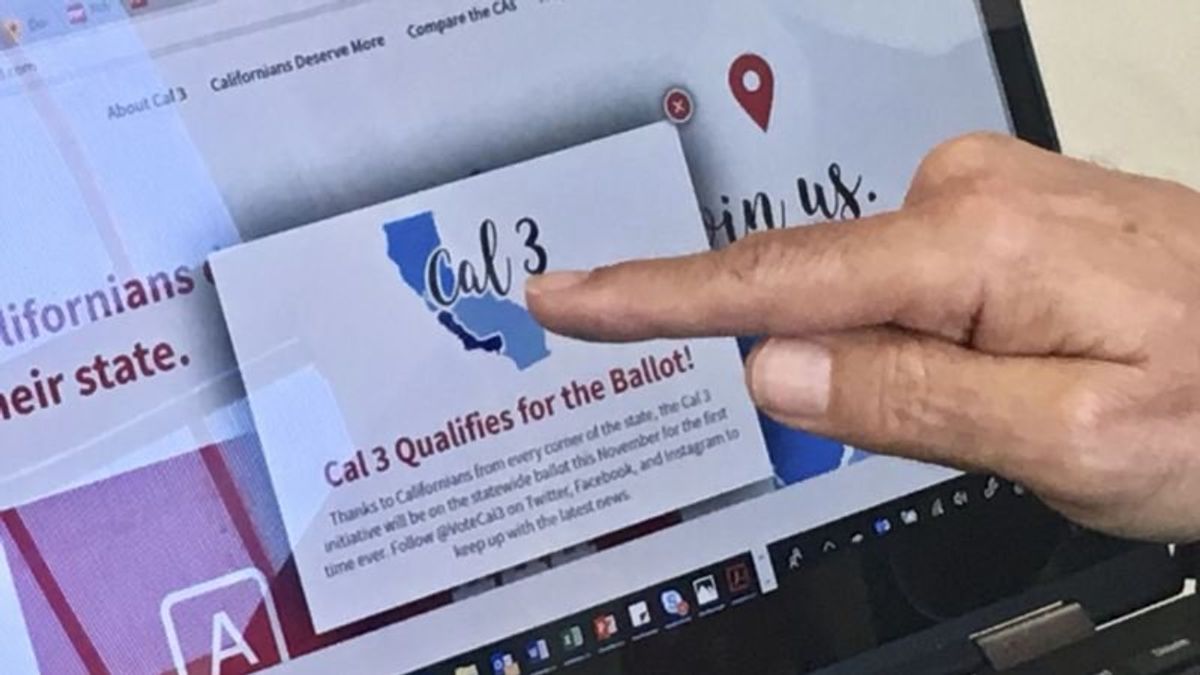
California High Court Rejects Proposed Measure to Divide State
California High Court Rejects Proposed Measure to Divide State

In November, Californians will not have to decide whether the state should be partitioned.
The state Supreme Court ruled this week that a measure on partitioning the nation's most populous state into three could not be put on the ballot for the November midterm elections.
In June, state election officials announced the proposed ballot measure had received enough signatures to appear on the ballot. Yet, the state’s highest judicial body ruled that splitting California would amount to a change in its Constitution, requiring the approval of the state legislature before voters go to the polls.
“Significant questions have been raised regarding the proposition’s validity," the court said. The ruling also said, "We conclude that the potential harm in permitting the measure to remain on the ballot outweighs the potential harm in delaying the proposition to a future election."
The measure was backed by California-based venture capitalist Tim Draper. He has long attempted to force a vote on similar measures to divvy up his home state.
"Three states will get us better infrastructure, better education and lower taxes," Draper told the Los Angeles Times last year, after submitting his most recent proposal. "States will be more accountable to us and can cooperate and compete for citizens."
A California environmental group, the Planning and Conservation League (PCL), opposed the measure.
“California’s Constitution rightfully ensures that voters have a voice in public policy through direct democracy,” Howard Penn, the PCL’s executive director, said in a statement. “If those constitutional safeguards mean anything, they should prevent a billionaire from circumventing the constitutionally required process for making such sweeping changes to our government.”
The high court gave Draper 30 days to respond to the ruling.
If such a measure to divide the state were to pass someday, it would most likely require approval from the U.S. Congress. No U.S. state has been divided since West Virginia broke off from Virginia in 1863, during the Civil War.
 White House: Russia Call for Ukraine Referendum IllegitimateNext PostDemocrats Want to Compel Interpreter to Testify About Helsinki Summit
White House: Russia Call for Ukraine Referendum IllegitimateNext PostDemocrats Want to Compel Interpreter to Testify About Helsinki Summit





